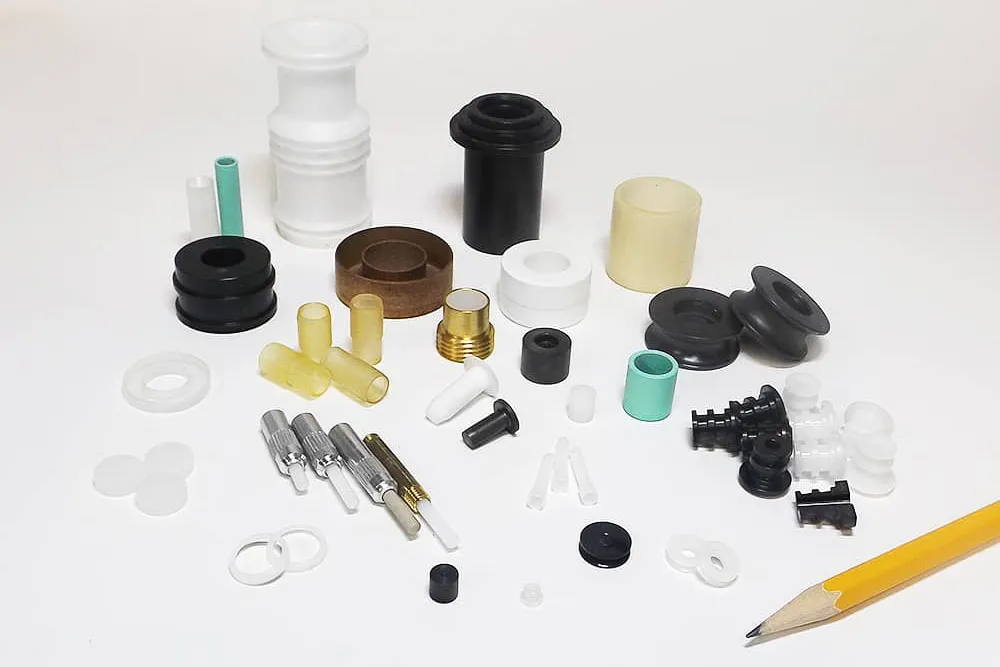CNC machining is a cost-effective manufacturing technique that produces finished products by precisely cutting, drilling, or sawing material from a single block of metal or plastic. Guided by computer-aided design (CAD) software, a computer-controlled cutter follows a predetermined tool path to create the desired product. This automated process is known for its quick turnaround time and ability to produce high-quality, consistent components. Additionally, CNC machining is capable of achieving some of the most stringent specifications, allowing for highly customizable designs and precision parts.
The Role of Plastics in CNC Machining
Plastics play a crucial role in manufacturing a wide range of commercial and retail goods. Some components require high accuracy, reliability, and tight tolerances. However, traditional manufacturing methods can be costly, driving up expenses. CNC plastic machining offers a cost-effective solution by eliminating extra expenses, making components more affordable and allowing clients to save on their projects. As a result, CNC plastic machining has become increasingly popular among manufacturers looking for durable, high-quality plastic materials and components.
Can Plastic Be CNC Machined?
Since the advent of industrial-grade polymer materials, plastic has become indispensable in modern manufacturing. Plastic components are cost-effective, lightweight, and durable. Common methods for producing robust plastic products include injection molding, additive manufacturing, and polyurethane molding. However, many manufacturers consider CNC machining the optimal method for their plastic component needs due to its unique advantages.
Plastic CNC machining is often favored for its reliability, versatility in working with various materials, and ability to produce components with intricate structures. This process allows for the creation of precise duplicates with consistent quality across all renderings within the same set, making it ideal for both technical and aesthetic evaluations.
Which Plastics are Machinable?
CNC machining is more accurate, detailed, and efficient for processing polymer-based products than injection molding. It is also more consistent and compatible with a broader range of polymers than many other manufacturing processes, making it an appealing option for many development teams. Here are five of the most machinable CNC plastics available today:
- Polyacetal Polyoxymethylene (POM)
POM is one of the most machinable CNC polymers. It is the material of choice for development teams seeking a strong, durable plastic with excellent resistance to heat, corrosion, humidity, and combustion. Certain grades of POM offer exceptional structural stability, making them ideal for producing precision parts with tight tolerances. However, POM’s weak acid resistance can make bonding difficult. This material is commonly used in automotive components, measurement gauges, and watch parts. - Polycarbonate (PC)
Polycarbonate is a popular choice in the industrial sector. It is strong yet lightweight, naturally heat-resistant, and possesses excellent electrical insulating properties. PC is also more versatile than many other engineering thermoplastics. Notably, PC is inherently translucent and can reflect light as effectively as glass, while also being easily colored. This polymer is widely used in products such as food containers and protective plastic eyewear. - Nylon 66
Nylon is a broad class of low-friction industrial thermoplastic polymers known for high impact strength, damage resistance, excellent corrosion resistance, and superior mechanical properties. Nylon 66, in particular, is well-suited for custom CNC machining due to its robustness and resilience. It is widely used in various industries, especially in automotive and medical equipment, thanks to its inherent flexibility, ability to withstand significant stress, and resistance to petroleum damage. - Acrylonitrile Butadiene Styrene (ABS)
ABS is a widely used thermoplastic material known for its impact resistance, durability, high thermal resistance, and excellent mechanical properties. As an effective insulator, ABS is ideal for electronic applications, maintaining mechanical stability and consistency. Because ABS is lightweight, affordable, and readily available, it is commonly used by product development teams for rapid prototyping. Other applications include machine enclosures, car dashboards, and keyboard caps. - Polytetrafluoroethylene (PTFE)
PTFE, commonly known as Teflon, is a versatile polymer with various industrial properties that make it valuable for product development teams. PTFE is resistant to chemicals, high temperatures, UV radiation, moisture, corrosion, and stress. It is known for its outstanding anti-adhesion properties, making it a popular choice for non-stick pan surfaces, but it is also used in valves, semiconductors, and medical implants. PTFE is one of the most corrosion-resistant polymers available and has an extremely low friction coefficient compared to any solid material.
Conclusion
Plastic CNC machining is an essential process in modern manufacturing, offering unmatched precision, efficiency, and versatility across a wide range of materials. By enabling the production of high-quality, complex parts with tight tolerances, CNC machining plays a critical role in industries where accuracy and reliability are paramount. The ability to work with various polymers further enhances its appeal, making it the go-to method for producing durable and cost-effective components. As technology advances and the demand for customized solutions grows, plastic CNC machining will continue to be a cornerstone of innovative manufacturing practices.

